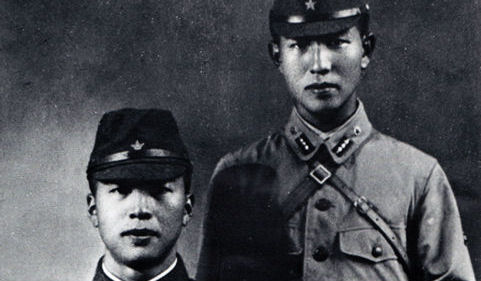Once a month here on the Molten Sulfur Blog, I run content taken from our book Archive: Historical People, Places, and Events for RPGs. This post is one of eighty entries in Archive, each more gameable than the last!
This post is brought to you by beloved Patreon backer Justin Moor. Thanks for helping keep the lights on! If you want to help keep this blog going alongside Justin, head over to the Patreon page – and thank you!

Hiroo Onoda
No Surrender
In the dying days of World War II, Hiroo Onoda was called up to join the Imperial Japanese Army. He was sent to Lubang Island in the Philippines to lead soldiers in guerrilla warfare. Before Onoda departed, his division commander gave him ominous orders. Neither Onoda nor his men were allowed to surrender, stop fighting, or commit suicide. They were expected to survive, even if the army never retrieved them. Onoda likely took these words more seriously than his division commander intended.
Once on Lubang, Onoda was supposed to blow up the pier, then destroy the airfield, but the Allies overran the island first. The surviving Japanese soldiers, including Onoda, retreated into the jungle and split up into groups. Continued American attacks further attrited their numbers. By now, Onoda was leading only three men. They had few supplies, just the clothes on their backs, a little rice, and limited ammunition.
Food was a serious concern. Rationing the rice often led to fights, though gathering wild coconuts and bananas helped stretch supplies. Every once in a while, the soldiers would emerge from the jungle to slaughter a civilian’s cow. Though they were struggling to survive, the guerrillas weren’t just hiding from the Allies. The cells would save up their energy for coordinated attacks. Some of the other cells were captured or killed, but Onoda’s continued to fight.
In 1945, Onoda first saw a leaflet claiming the war was over, and when another cell captured a civilian’s cow, they found a second.. The leaflet told them to come out of hiding, but they stayed in the jungle because another cell had been fired upon a few days prior. If the war were over, why would they still be under attack? Onoda and the others decided that the leaflets must have been a clever ruse by the Allies to get them to surrender. Towards the end of 1945, the outside world made another attempt at contact by flying planes overhead and dropping leaflets with a surrender order from General Yamashita of the Fourteenth Area Army. Onoda scrutinized every word on the leaflet, as that piece of paper was his only proof that the war was over. Again, he believed it was an Allied hoax.
More and more leaflets rained over the jungles and mountains. Newspapers, photographs, and letters from relatives were dropped, and friends and relatives spoke out over loudspeakers, trying to draw the survivors out. Onoda didn’t believe them. His band spent years in isolation. They would fire on villagers because they believed anyone dressed as islanders could be spies or enemy troops in disguise. In 1949, one of the men in his group left and surrendered. Onoda treated the desertion as a security breach and grew even more cautious. Another member of the group was injured in 1953 and died a year later. The last two members continued living in the jungle together for nearly 20 years after their comrade’s death. In 1972, Onoda’s last companion was killed.
Onoda was on his own. His division commander’s order remained in his mind. He must not take his own life. He must not surrender. So he continued to hide. A man found him and tried to convince him that the war was over, but Onoda told him that he would only surrender if his commander ordered him to do so directly. So, in March of 1974, the man who found Onoda traveled back to Japan and returned with Onoda’s former commander, Major Taniguchi. They met at a predetermined location, and Major Taniguchi ordered Onoda to stop fighting. Onoda was shocked he had spent 30 years in the jungle waging a war that was long over, but when he returned to Japan, many hailed him as a hero.
Hiroo Onoda in Play
Hiroo Onoda would make a great recurring villain. If he lives in the region in which the PCs are adventuring, he could be a pernicious thorn in their sides, popping up when least expected to ruin their plans and fade back into the wilderness. He could kidnap or assassinate important NPCs, noisily disrupt stealth encounters, steal critical equipment, and generally make himself a nuisance. If the party decides to root Onoda out, his decades of experience will make him a devilish quarry. Design every combat encounter with Onoda so the terrain favors him in every way; he chooses his battlefields well. Alternately, Onoda could be a tragic figure encountered in the wilderness, who refuses to believe the party’s lies about thirty years of peace. Finally, you might choose to use a version of Onoda from after his return to civilization. PCs intending to operate in his old haunts might seek out his expertise. Or he could be a source of (fanatical) moral guidance.






